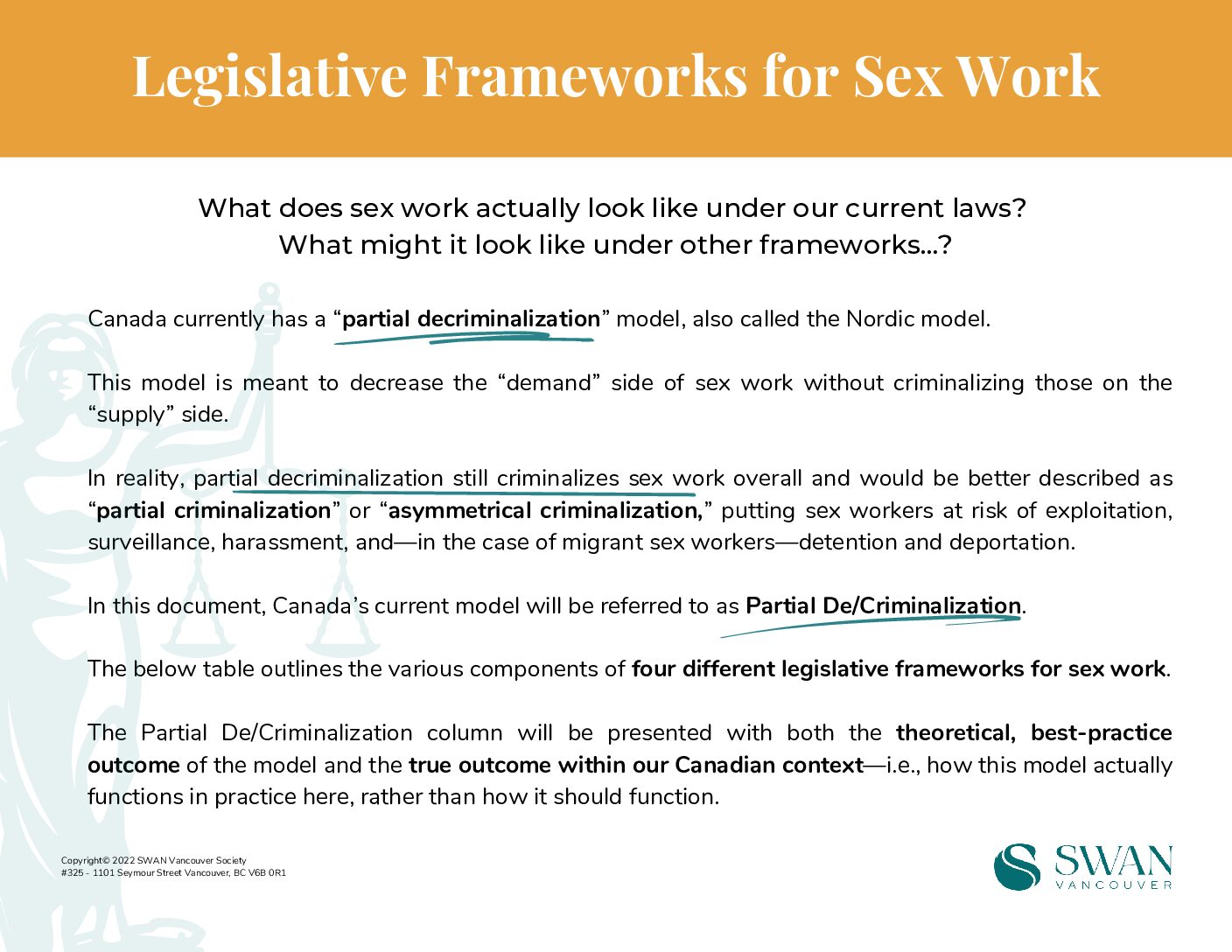Canada’s current legislative framework for sex work is an end-demand model called “partial decriminalization”, or the Nordic Model. Partial decriminalization purports to end the demand for sex work by criminalizing the buyer of sexual services while leaving the seller decriminalized. In theory, this model should reduce demand for sex work while protecting sex workers. However, Canada’s current model is deeply flawed, still criminalizes sex work overall, and actually creates harm and vulnerability for people engaged in sex work. It would be more accurate to call our current framework partial criminalization or asymmetrical criminalization.
Our current model harms sex workers
The current model continues to criminalize many aspects of sex work, forcing sex workers underground. This makes them vulnerable to violence, abuse and exploitation. It also means sex workers cannot access the same resources and human rights available to other workers, such as insurance, adequate healthcare, police, the justice system or labour rights enforcement. Read the full resource to learn more about Canada’s current model for sex work, as well as other potential models and how each would impact sex worker safety, relationships with clients, third parties, police and other institutions, and the level of sex work stigma associated with each approach.
for the full list of resources

